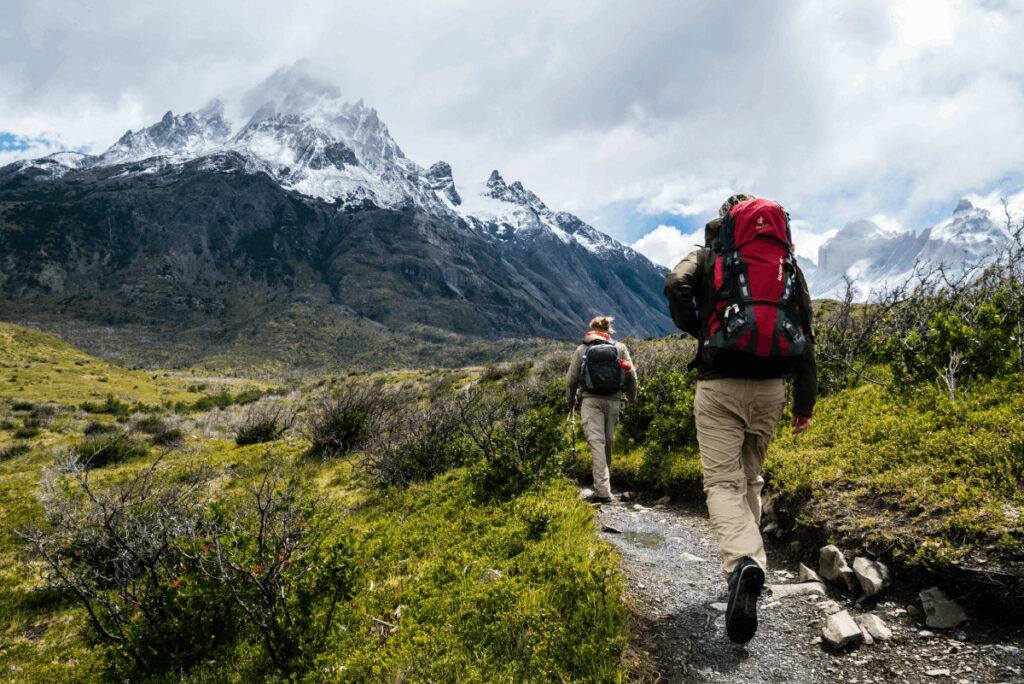Introduction
The great outdoors can be a wonderful and rewarding place to explore, especially for new hikers who are eager to venture out and experience the beauty of nature. But, whether you’re planning a day hike or an overnight camping trip, it’s important to be well-prepared and knowledgeable before hitting the trails.
In this article, we will provide you with some essential tips for new hikers to make your hiking experience safer, more comfortable, and more enjoyable. From choosing the right gear to understanding trail etiquette, we’ve got you covered.
So, grab your hiking boots, a camera, water bottle, and a snack, and let’s get started!

5 Essential Tips for New Hikers
1. Choose the Right Trail
When it comes to hiking, there are a variety of trails to choose from. Some are short and easy, while others are longer and more challenging. As a new hiker, it’s important to choose a trail that matches your fitness level and hiking experience. Here are some things to consider when choosing a trail:
- Distance: Start with a shorter trail that’s less than 3-5 miles, and work your way up to longer trails as you gain more experience.
- Elevation gain: If you’re new to hiking, avoid trails with a steep incline until you’ve built up more endurance.
- Terrain: Trails with rocky or uneven terrain can be challenging for new hikers, so choose a trail with a smoother surface to start.
- Trail rating: Check the trail rating before you go. Most trails are rated on a scale from easy to difficult, so choose a trail that matches your skill level.
2. Pack the Right Gear
Packing the right gear is essential for any hiking trip, but it’s especially important for new hikers. Here are some must-haves for your hiking gear checklist:
- Hiking boots or shoes: Make sure your footwear is comfortable, supportive, and broken in before your hike.
- Backpack: Choose a backpack that’s lightweight and fits comfortably. It should be able to hold all your essentials, such as water, snacks, a first aid kit, and extra clothing layers.
- Navigation tools: Bring a map and compass, or download a hiking app with offline maps before you go.
- Sun protection: Wear a hat, sunscreen, and sunglasses to protect yourself from the sun.
- Weather-appropriate clothing: Dress in layers and avoid cotton clothing, which can become wet and heavy. Bring rain gear if rain is in the forecast.
- Water and snacks: Bring plenty of water and energy-boosting snacks like trail mix or granola bars.
3. Know Your Limits
As a new hiker, it’s important to know your limits and not push yourself too hard. Here are some tips for pacing yourself:
- Take frequent breaks: Stop to rest and rehydrate every 20-30 minutes.
- Listen to your body: If you’re feeling tired or experiencing pain, take a break or turn back.
- Start early: Start your hike early in the morning to avoid hiking during the hottest part of the day.
4. Practice Trail Etiquette
When you’re on the trails, it’s important to be respectful of other hikers and the environment. Here are some tips for practicing good trail etiquette:
- Yield to uphill hikers: If you’re hiking uphill and encounter someone coming downhill, be knowledgeable of who yields.
- Stay on the trail: Don’t venture off the designated trail, as this can damage the surrounding environment.
- Pack out your trash: Bring a garbage bag and carry out any trash or litter you generate.
- Leave no trace: Practice Leave No Trace principles by minimizing your impact on the environment.
5. Be Prepared for Emergencies
Even with the best planning and preparation, emergencies can happen on the trail. Here are some tips for being prepared:
- Carry a first aid kit: Make sure your first aid kit includes bandages, gauze, adhesive tape, tweezers, and other essentials.
- Know basic first aid: Take a basic first aid course so you’re prepared to handle minor injuries.
- Bring a whistle: A whistle can be used to signal for help if you get lost or injured.
- Have a backup plan: Let someone know where you’re going and when you expect to return. If you don’t return on time, they can alert authorities.
FAQs
Q: How much water should I bring on a hike?
A: As a general rule, you should aim to drink at least one liter of water per hour of hiking. However, this can vary depending on the weather, trail difficulty, and your own body’s needs. Always bring more water than you think you’ll need, and don’t rely on natural water sources unless you’ve treated the water or know it’s safe to drink.
Q: Do I need a permit to hike?
A: Some hiking trails require permits, especially if they’re in a national or state park. Check with the park or trail manager to see if a permit is required and how to obtain one.
Q: What should I do if I get lost on the trail?
A: If you get lost on the trail, stay calm and don’t panic. Use your navigation tools to try to find your way back to the trail or a landmark. If you can’t find your way, stay put and wait for help. Blow your whistle, make noise, or use a mirror to signal for help.
Conclusion
Hiking can be a fun and rewarding way to experience the great outdoors, but it’s important to be well-prepared and knowledgeable before hitting the trails. By choosing the right trail, packing the right gear, knowing your limits, practicing good trail etiquette, and being prepared for emergencies, you can ensure a safe and enjoyable hiking experience.
Remember, hiking is not a race, and it’s important to go at your own pace and enjoy the journey. By following these tips for new hikers, you’ll be well on your way to mastering the trails and experiencing all the wonders that nature has to offer.




